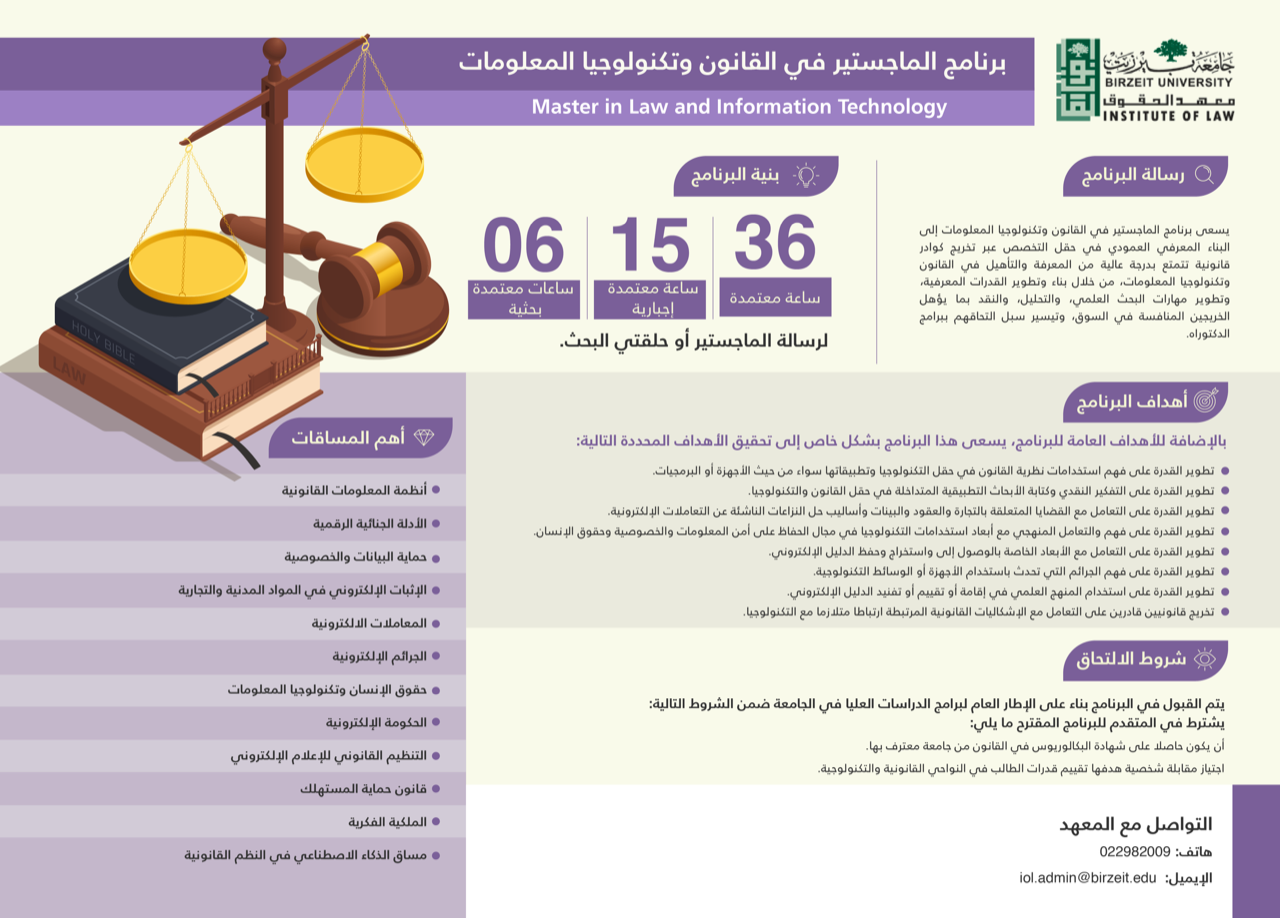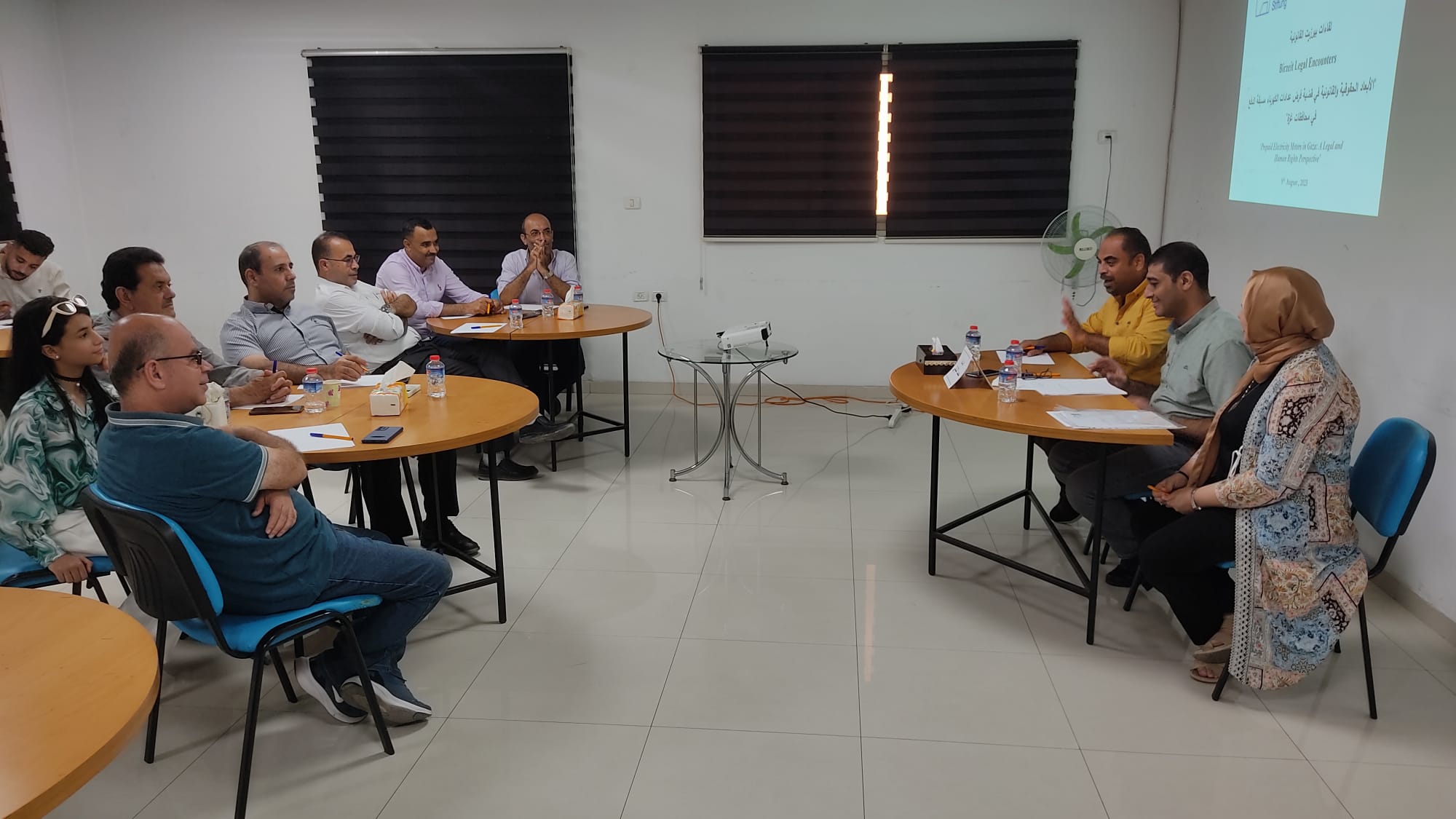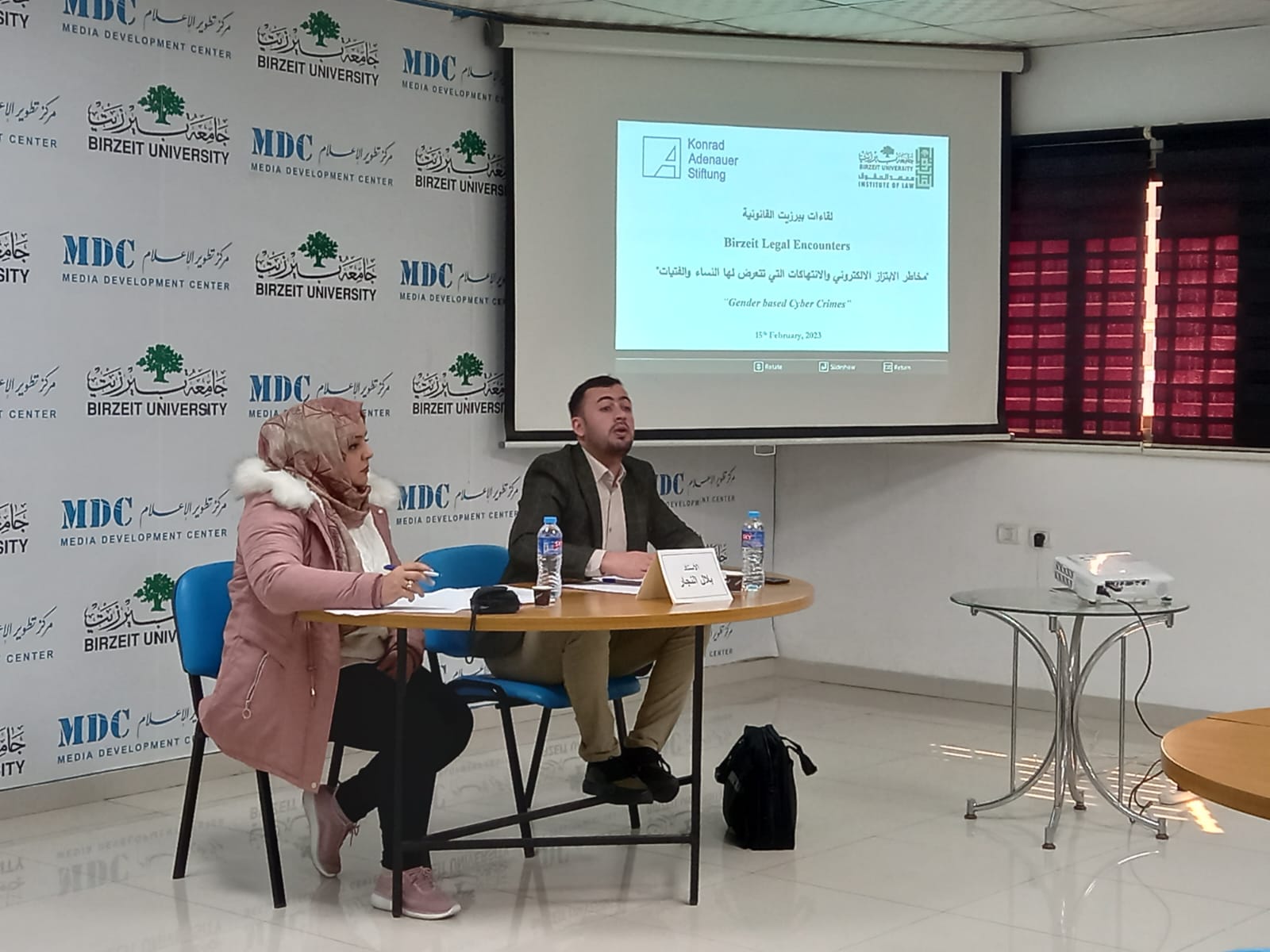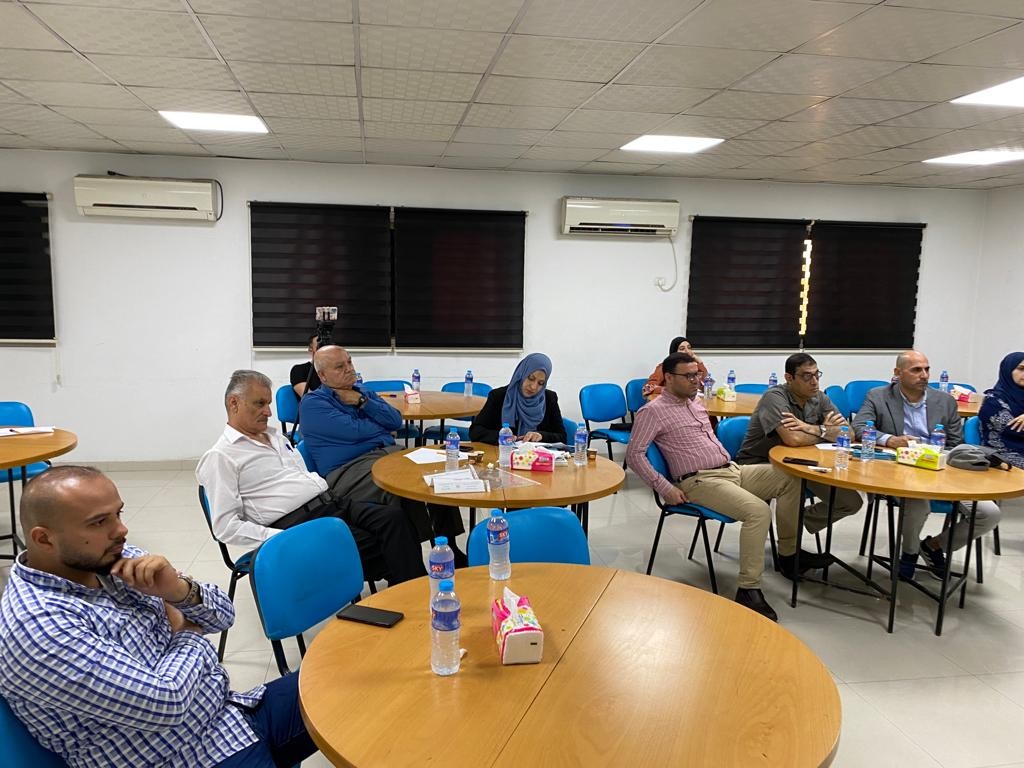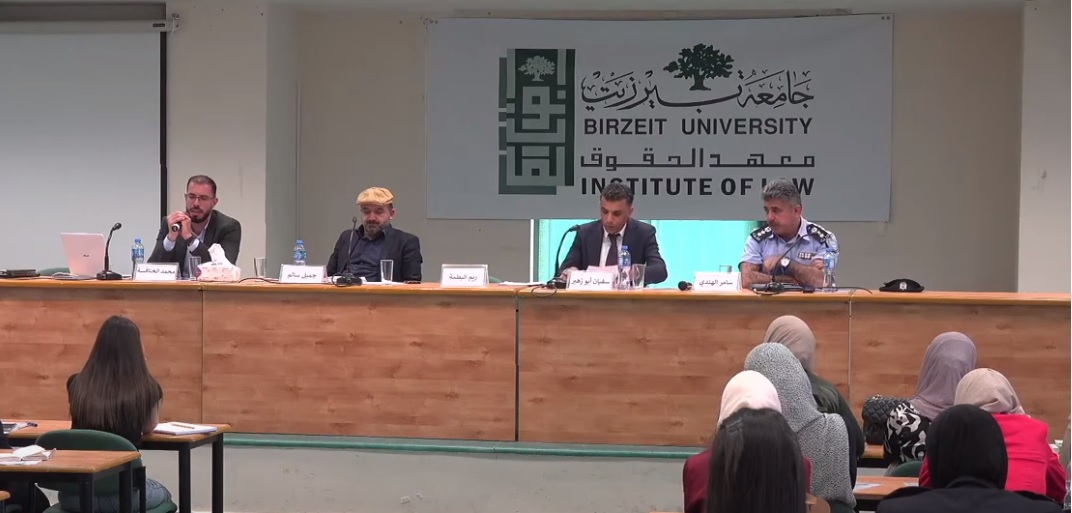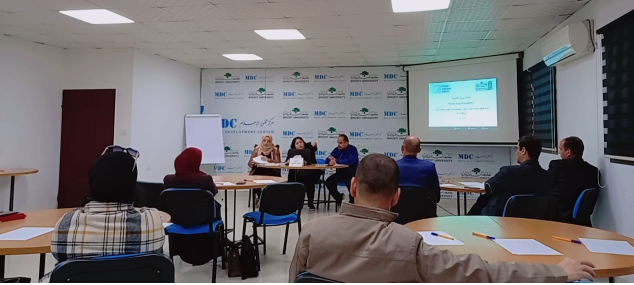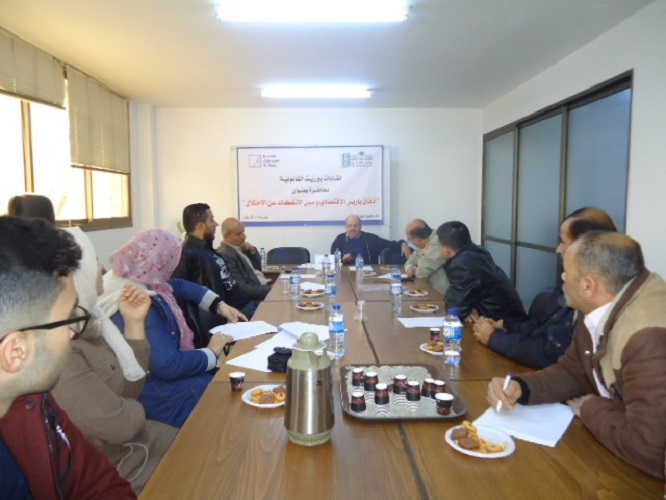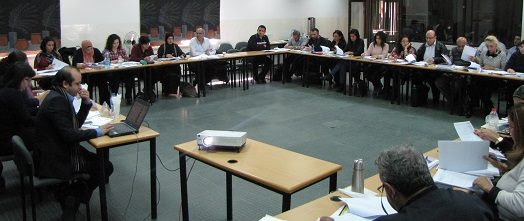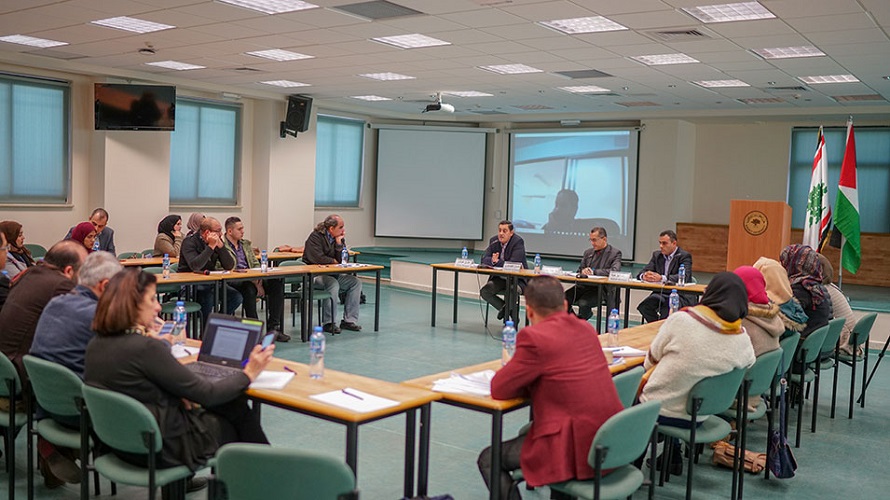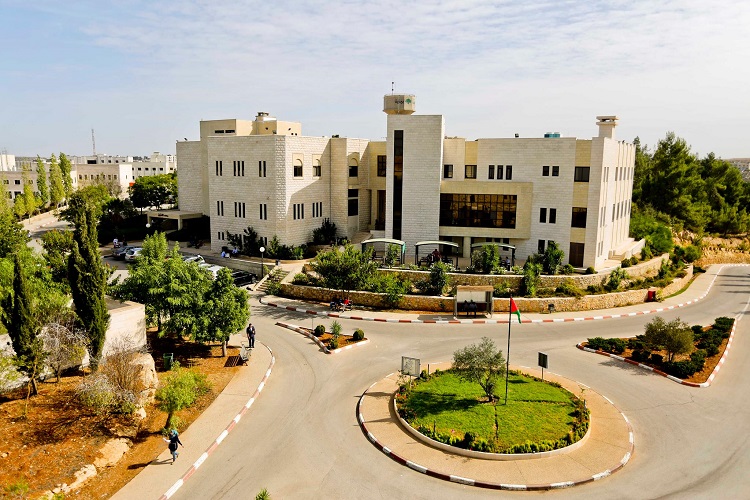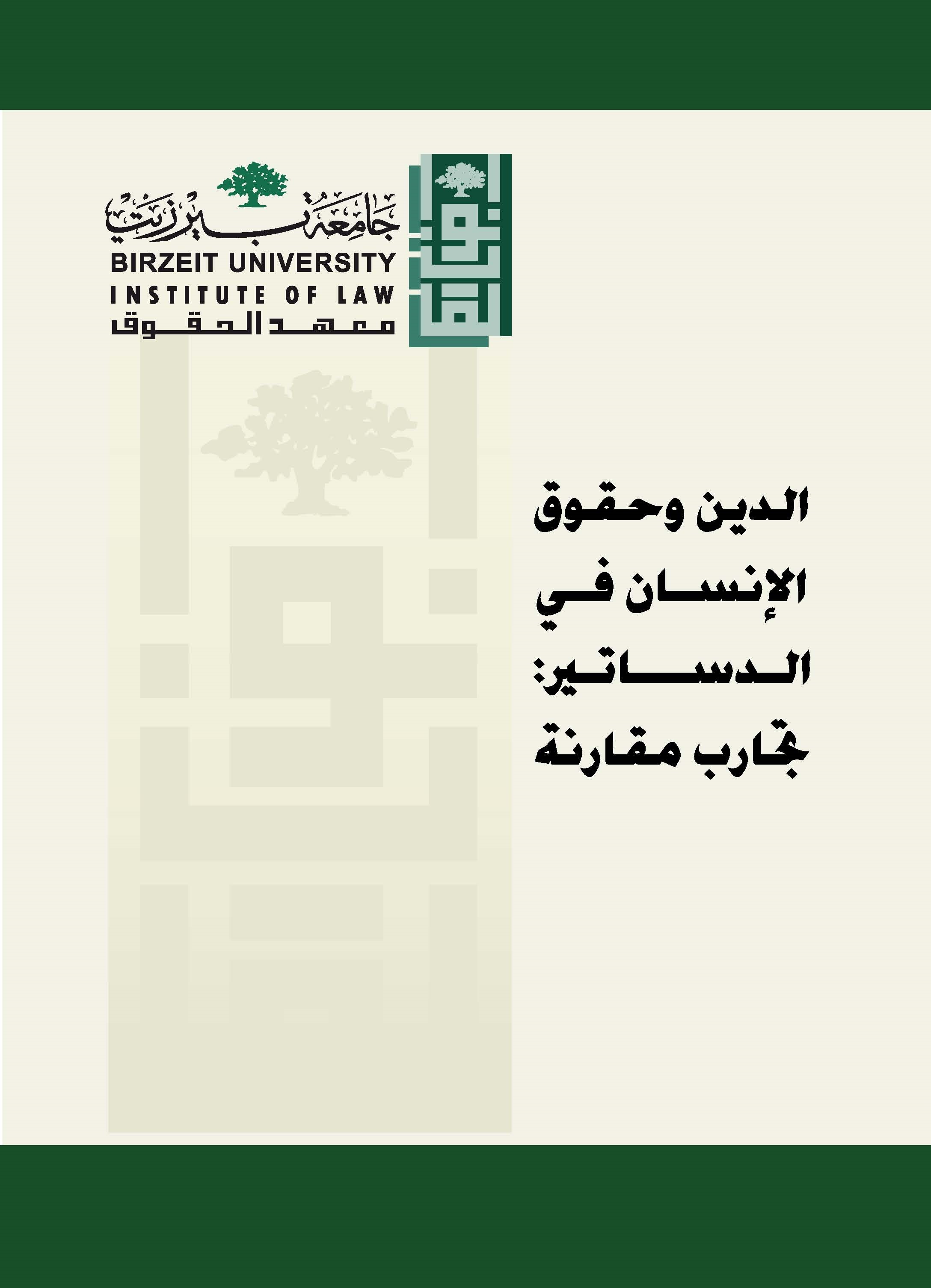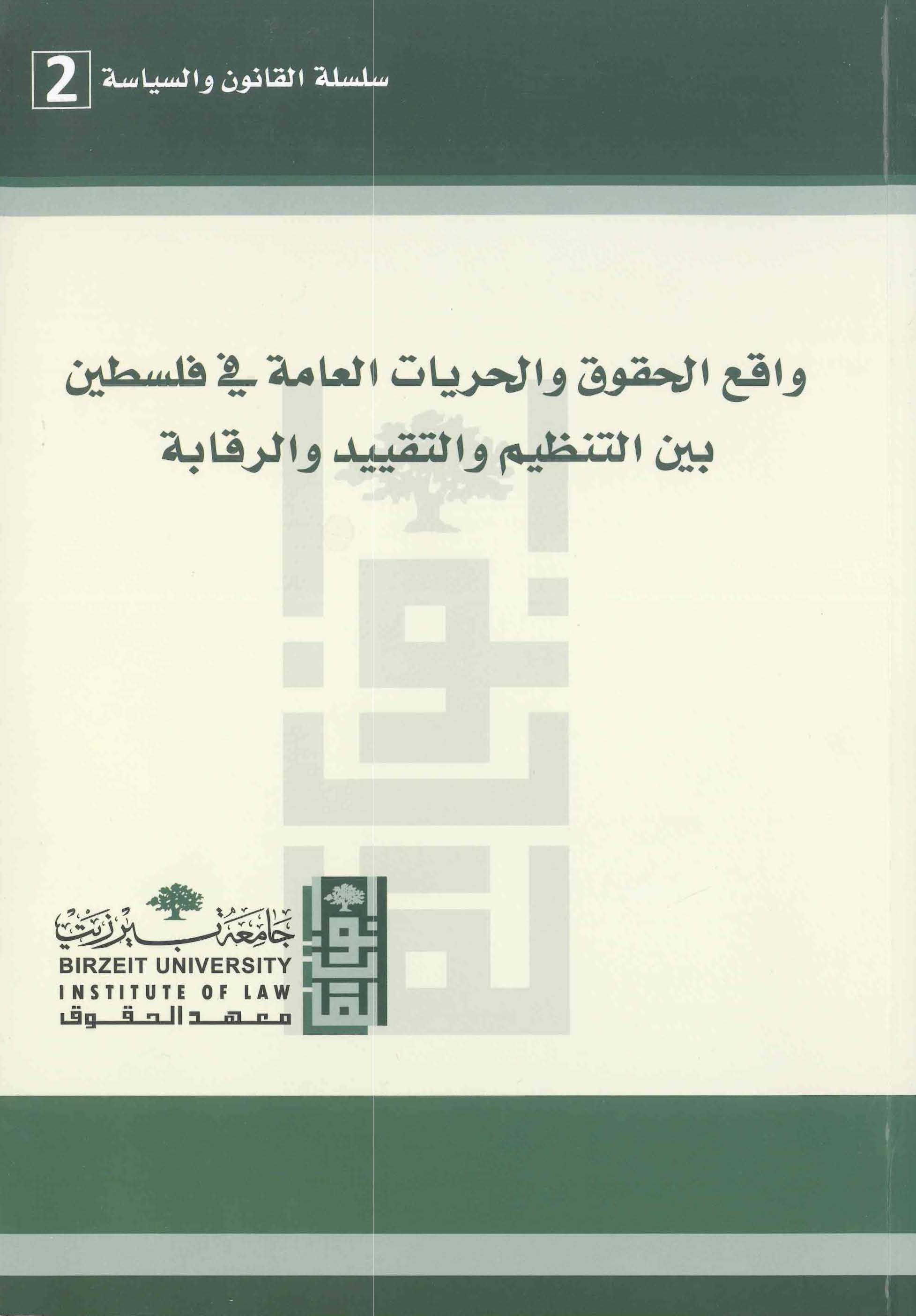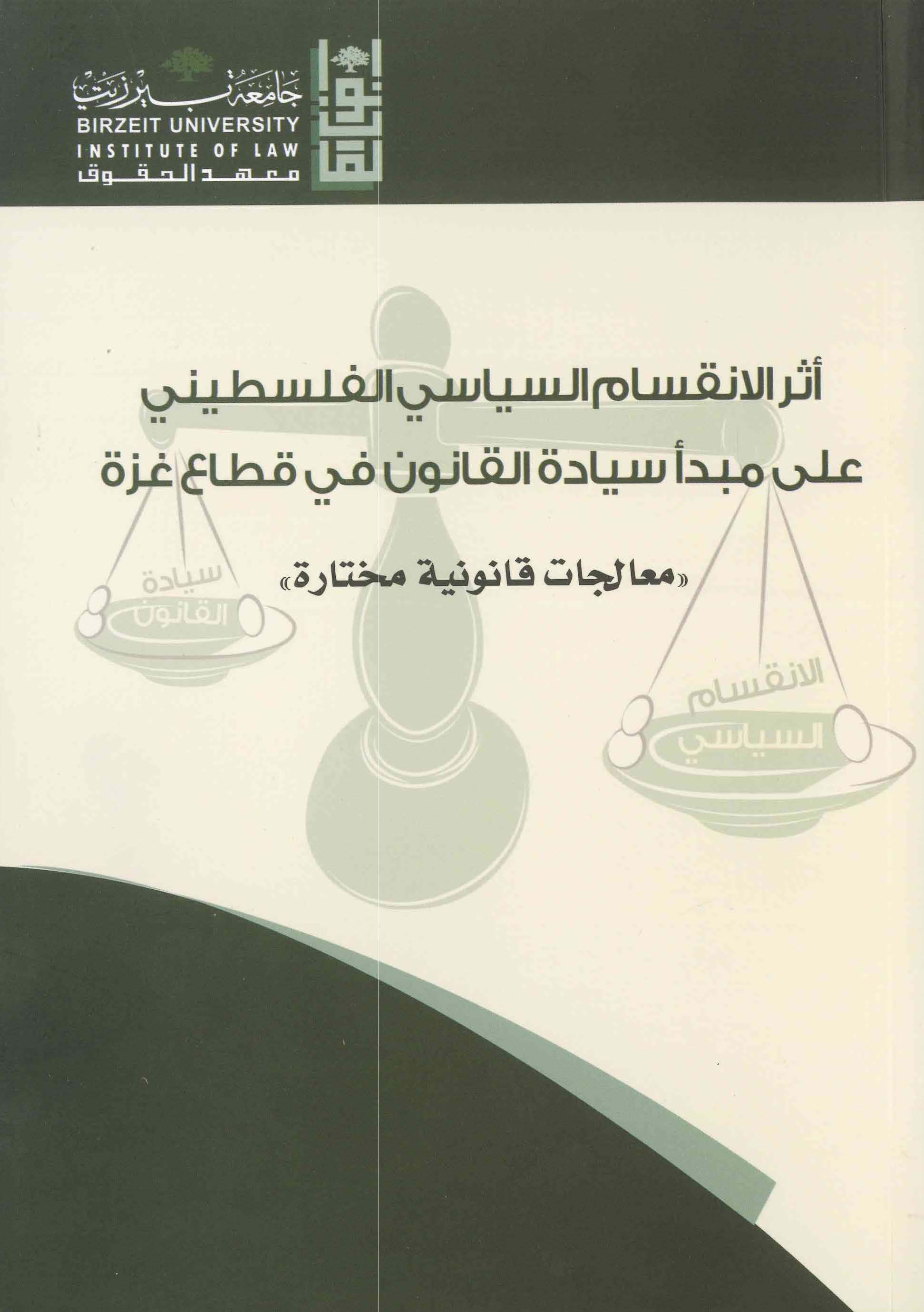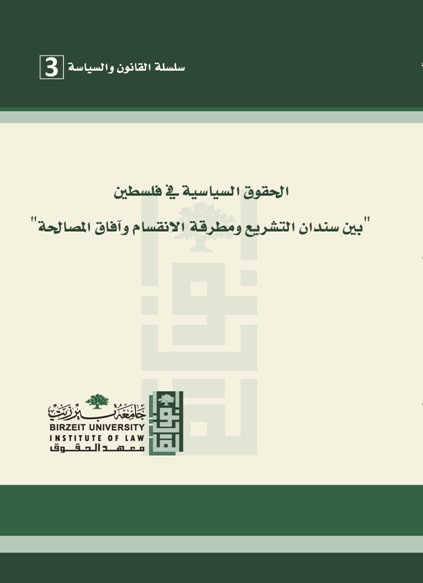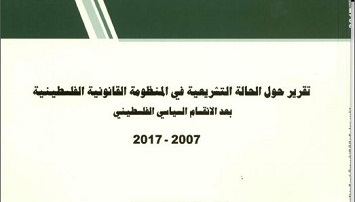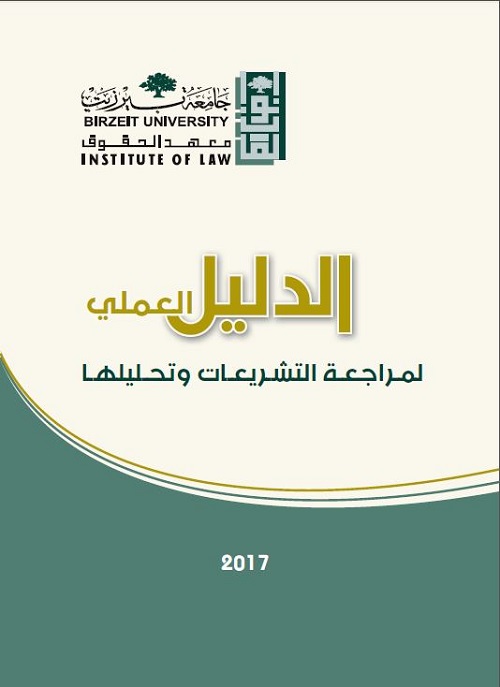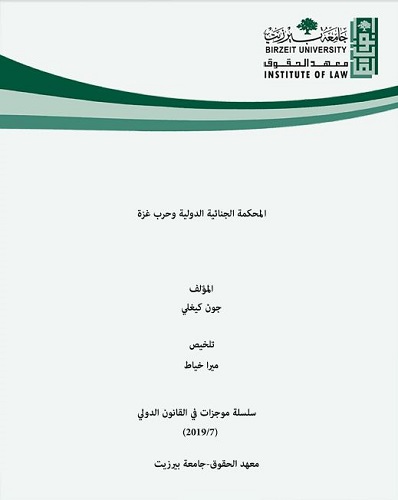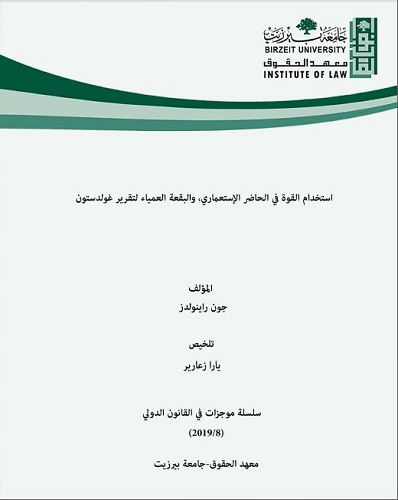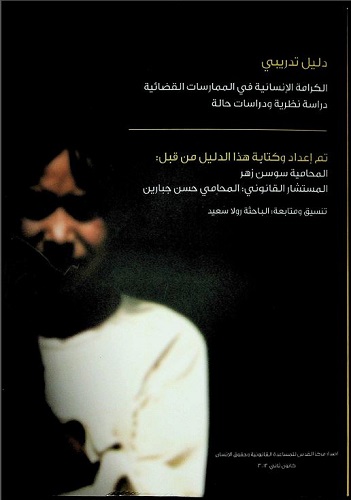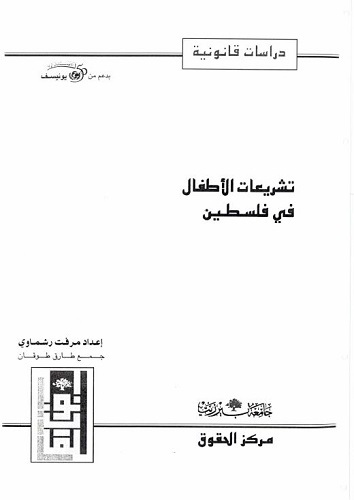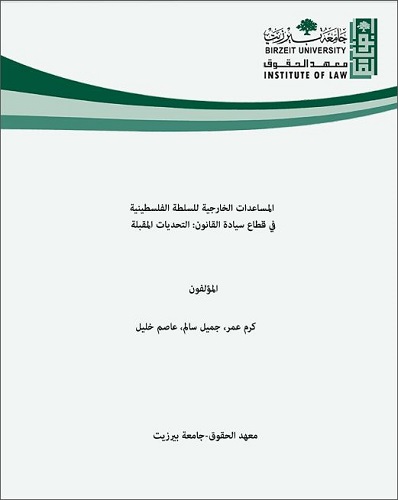The Supreme Criminal Chamber in the Gaza Strip: Problems and Reality
On Wednesday, 15 June 2022, the Institute of Law (IoL) of Birzeit University held a legal encounter on The Supreme Criminal Chamberin the Gaza Strip: Problems and Reality. Bringing together a number of lawyers, members of the legal community, and interested persons, the presentation was made by Dr. Samia al-Ghusein, Associate Professor of Public International Law.
In her opening statement, Ms. Lina al-Tounisi, Coordinator of the IoL Gaza Office, welcomed the speaker and audience and made a briefing note about the Birzeit Legal Encounters Programme. Dr. Al-Ghusein stated that developed countries showed great interest in establishing and expanding specialised courts. These courts play an effective role in promoting independence, unity, and efficiency of the judicial system, achieving full justice, and ensuring summary disposition of cases. Proceedings used to take a long time before court, delaying or sometimes denying citizens’ access to their rights.
Dr. Al-Ghusein made a review of legal provisions on the formation of regular courts under the Palestinian law. According to the Law No. 5 of 2001 on the Formation of Regular Courts, the High Judicial Council (HJC) is vested with the power to establish specialised chambers or panels in the Conciliation Courts, Courts of Appeals, and High Court only. However, the Law does not authorise the HJC to create specialised chambers or panels in Courts of First Instance with either civil or criminal jurisdiction. Interpretative judgment shall not be resorted to wherever an explicit, unobscured and unambiguous provision is provided. Hence, based on the explicit provisions of the Law on the Formation of Regular Courts, the HJC may not put in place specialised panels or chambers in the Courts of First Instance, whose criminal jurisdiction is limited to relevant crimes and misdemeanours. Pursuant to Article 10 of the Law by Decree No. 30 of 2020 on the Formation of Regular Courts, “[t]he Court of First Instance shall establish a judicial chamber to hear civil cases and another judicial chamber to consider criminal cases.” Each chamber will consist of one or more panel(s) as determined by the presiding judge of the Court of First Instance and according to need. In the event the proper functioning of a court so requires, the presiding judge of the Court of First Instance is entitled to set forth a specialised panel within each civil or criminal chamber in the relevant Court of First Instance or Conciliation Court. In addition, Article 10(3) of the Law by Decree prescribes that “[t]he Chairman of the High Judicial Council shall be entitled to establish other specialised judicial chambers in the Court of First Instance in case the functioning of the judicial processes thus requires, provided that he specifies the subject-matter jurisdiction (jurisdiction ratione materiae), jurisdiction of value (amount in controversy jurisdiction), and territorial jurisdiction (jurisdiction ratione loci) for each in accordance with a regulation.”
Dr. Al-Ghusein elaborated on the High Criminal Court in the West Bank. After it had been promulgated, the Presidential Decree No. 20 of 2007 on the Formation of a High Criminal Court was repealed by the Palestinian Legislative Council (PLC). While a high criminal court was not needed at the time, the Decree was in contravention to the Law on the Formation of Regular Courts. The Law by Decree No. 24 of 2017 and Law by Decree No. 9 of 2018 on the High Criminal Court were passed. Later, the Law by Decree No. 14 of 2019 on the Repealing of the Law by Decree No. 9 of 2018 on the High Criminal Court was enacted. Dr. Al-Ghusein explained that the Law by Decree on the High Criminal Court was met with strong opposition across the West Bank for several reasons. Most importantly, the formation of a high criminal court by a law by decree was in violation of the provisions of the Palestinian Basic Law, particularly Article 97 thereunder. The law by decree also contravened many fair trial guarantees, which should be provided to the accused under Palestinian national legislation and international conventions, which the State of Palestinian acceded to.
By a decision of the Chairman of the High Council of Justice (HCJ), in January 2022, a supreme criminal chamber was established in the Courts of First Instance in the Gaza Strip. The Supreme Criminal Chamber is competent of hearing crimes and serious offences committed in Gaza over the past few years. The chamber has jurisdiction over the crimes of murder, narcotic drugs (acquisition and trafficking), and corruption (civil servants). Affiliated with the Court of First Instance, formation of the newly established Supreme Criminal Chamber in Gaza was clearly and directly contrary to the provisions of Articles 10, 21, and 28 of the Law on the Formation of Regular Courts in force in the Gaza Strip. The Law does not give the HCJ any power or authority to establish a specialised supreme criminal chamber or panel in the Courts of First Instance nor any competence that falls under the civil or criminal jurisdiction of the Court of First Instance.
Dr. Al-Ghusein also reviewed the nature of rulings entered by the Supreme Criminal Chamber in the Gaza Strip. In a summary trial that lasted no more than a month and a half, by consensus, the chamber handed down several sentences to death by hanging. The fact these death sentences were made in a short span of time was disquieting. It raised concern over compliance with guarantees of fair trial and whether the accused had the legally prescribed terms to be able to defend themselves against the charges imputed to them. This is particularly the case when a penalty as serious as death punishment is rendered.
Many interventions and recommendations were made in the ensuing discussion. Most notably, the establishment of a supreme criminal chamber in the Gaza Strip requires that judges specialising in criminal justice be appointed. These will have relevant experience in substantive and procedural matters of national penal laws as well as in international conventions and treaties, which the State of Palestine acceded to. Such a requirement is now lacking, however. The State of Palestine must fulfil its international obligations and abolish the death penalty under the domestic Palestinian legislation. To this end, needed legislative amendments will be introduced without delay.
